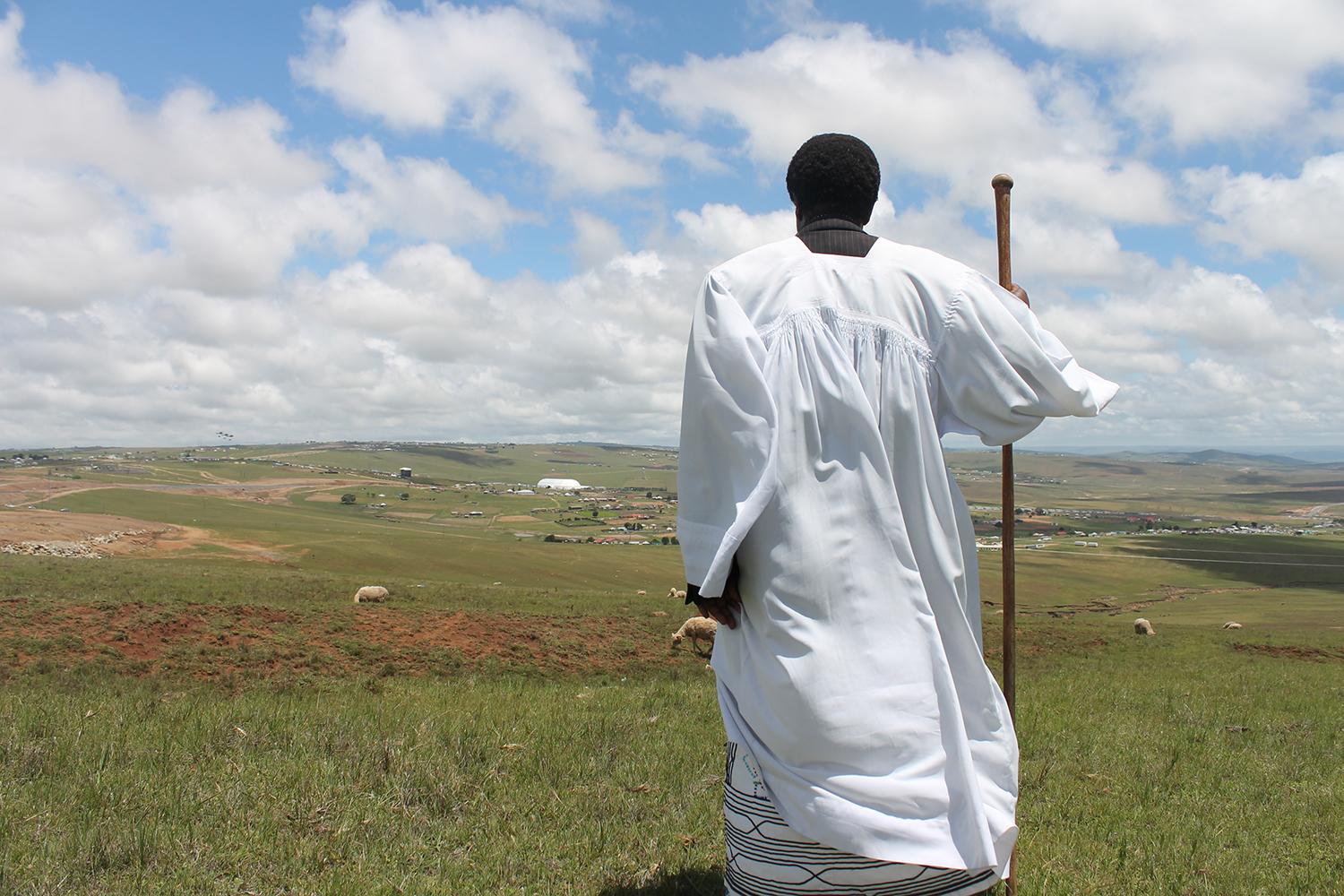PHOTOS: A nation says its final goodbyes to Nelson Mandela
A minister born and raised in Qunu says a prayer for Madiba.
By the time Nelson Mandela’s body was laid to rest in his childhood village of Qunu, South Africa, much of the celebratory mood surrounding his funeral had waned.
As his coffin made its way to the final burial ground, the sound of cannons booming in a military salute, thousands of mourners who flooded the remote area to pay their last respects felt a sense of closure.
Sydney Mphono traveled from the Welkom gold mines in the Free State, a province more than 400 miles from Qunu. A member of the National Union of Mineworkers, he called Mandela the “honorary life president” of the union who “pioneered the liberation of historically disadvantaged South Africans.” Mphono said he’d driven eight hours to be there, joining the convoy of cars that streamed into the village and drew crowds of local children who lined the roads to soak in the excitement and wave to visitors. Fellow union member Vincent Norawana said he was pleased to make the journey to honor Mandela, who he called a unifier and peacemaker. “We say phambili,” he said. “Long live a life well-lived.”
The two stood overlooking the funeral from the media center, about a half mile away. That was the closest anyone who was not accredited as family, close friends or select dignitaries could get to the proceedings. Hundreds of media representatives from countries including Brazil, England and Tanzania congregated. Many had spent the night in tents that lined the media center, a makeshift marquee set up on dusty soil, where laptops, news trucks and satellite dishes seemed entirely out of place.
What was meant to be a two-hour service lasted almost four. But just as the sun climbed to its midday spot — the time when, as tradition dictated, Mandela’s body was meant to be lowered into the ground — the media center sprung to life as more than 100 African men, cloaked in traditional Zulu attire marched to the hilltop, spears and fur-covered shields in hand. The men chanted, danced and sang in an energetic, reverent performance filled with archetypal African spirit. Television crews swarmed around them, and photographers dived in to get a decent shot.
But as the funeral drew to a close, the men cleared out, the journalists packed up their things, and the locals began the long trek back home. Madiba’s body was lowered into the ground, and slowly, for miles around him, the dust began to settle.
Editor's Note: This post has been updated with additional information.
We want to hear your feedback so we can keep improving our website, theworld.org. Please fill out this quick survey and let us know your thoughts (your answers will be anonymous). Thanks for your time!
